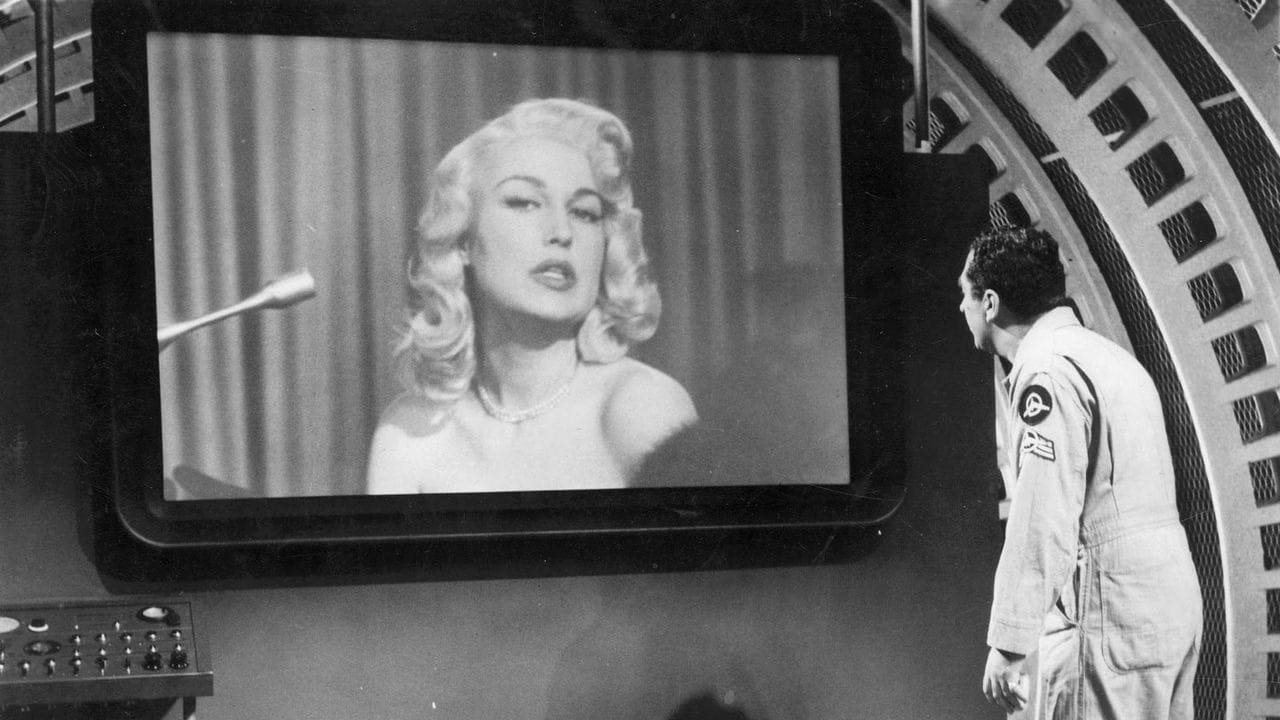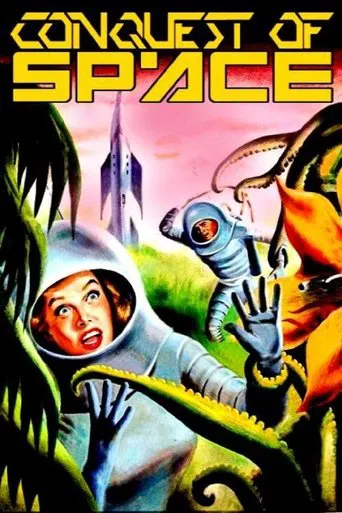

recommended
... View MoreLack of good storyline.
... View MoreAlthough I seem to have had higher expectations than I thought, the movie is super entertaining.
... View MoreMostly, the movie is committed to the value of a good time.
... View MoreO.K., so in the 63 years since this film came out, no actual earthling has walked on Mars, but the desire for space travel and the expansion of our overcrowded earth has continued. For this beautifully colorful George Pal adventure, the audience is taken into the somewhat restricted world of the astronauts where small cramped quarters, lack of real oxygen and a desire for something as simple as healthy water is a major concern. The first half of this film takes place on both the giant space wheel sent into orbit and the rocket sent up with supplies and other astronauts to prepare for its journey to Mars. Conflicts between father and son over their different ambitions for their lives as astronauts creates an interesting family subplot and interesting dimension past the science fiction themes 10 years prior to actual human space travel. The second half shows them on Mars dealing with the inability to get off the planet and the lack of water to sustain life. Sudden "Mars quakes" opens up the ground beneath them, giving me the hint that giant creatures were about to emerge from them. While that is not the case, what does happen is equally as thrilling, creating some brilliant special effects and some shocking visuals as the astronauts strive to leave this strange world and return home.Not a great movie so much as it is an entertaining one, it does get a bit talky in the first half, but is still never dull. The often boring lives of the astronauts is interrupted by moments of their personal interactions, as well as a brief glimpse of a colorful musical number featuring Rosemary Clooney in "Here Come the Girls", a 1953 Paramount film that seems to parallel the mythical view of outer space with its Arabian Knights costumes. Walter Brooke and Eric Fleming are father and son, much conflicted with their differing views, and give very good performances. Benson Fong, as the wise Japanese astronaut, is most thoughtful in his performance, while Mickey Shaugnessy, Phil Foster (Laverne DeFazio's TV father) and William Redfield are certainly representative of the common no-nonsense American, out to have fun wherever they can, but still very determined with their mission. The final sequence is rather scary, and while I wouldn't call this a truly realistic view of what the conquest of space was really like, it gave film audiences a fun way to imagine it as only special effects master George Pal could do.
... View MoreThis film has good-for-the-time FX, but unfortunately has a few really egregious errors depicting astronauts kicking themselves off a space platform in a zero-g vacuum. In a better film, that kind of error would be more tolerable, but this is not such a film. There are some good actors and some good moments here and there, and by virtue of this being a big budget George Pal 1950's production, an old school scifi fan is going to have a bit of fun here and there with this film. But the enjoyment is radically impaired by numerous instances of over-the-top and embarrassing sentimentality, emotionalism, and feeble attempts at comic relief. This is a good film to make fun of, but is no fun if you try to take it seriously. It has little in common with the good Pal films, such as Destination Moon, War of the Worlds, When Worlds Collide, other than FX. It is interesting, however, to note that this movie contains many plot elements and scenes that would later be included in '2001: A Space Odyssey:' 1. Ferris Wheel type space station and shuttle scenes 2. Repairing an antenna on a space walk scene 3. Picture phone communication between an astronaut and his lover exposing the emotional estrangement of the couple ENGAGE SPOILER WARNING 4. Decompression of space vehicle scene 5. Crew member going nuts and trying to kill everyone on the mission
... View MoreHaving produced the first "science fact/science fiction" film with "Destination Moon," George Pal should have been the perfect choice to produce "Conquest of Space." However, what Pal has assembled is a mess; for "Conquest of Space" consists largely of substandard special effects and plot implausabilities. Space is blue with stars that look like dots of white paint. When the space station moves erratically, it looks like the tiny model it is, since Pal didn't have it photographed using high speed cameras. The writers would have us believe "Sergeant Siegle" (Phil Foster), a character who would be more at home in a Jerry Lewis comedy is an "electronics genius" and that a man with virtually no knowledge of space travel would be "hand picked" to fly to Mars.I have few problems with the plot device of having the psychologically unstable "religious fanatic" commander suddenly questioning the mission and space exploration in general. Modern audiences might find this baffling or illogical; but, those who viewed "Conquest " in 1955 were likely familiar with stories of J. Robert Oppenheimer and other scientists who worked on the atom bomb and later denounced its development. More recently, Admiral Hyman Rickover, father of the US nuclear submarine program did much the same thing, in testimony before Congress.WARNING: SPOILERS I had slightly more problems with the Martian quake that conveniently begins just before the spaceship is to blast off from Mars. While this could easily happen in "real life," it would have been more dramatically plausible had there been a few "gentle" tremors during the year the crew was stranded on the planets surface.I had a slightly bigger problem with the deliberate "spill" of hypergolic fuel by the unhinged commander. That stuff is nasty, toxic and VERY corrosive. However, even that could be overlooked because of the crew's protective space suits.The movie makes a big issue of the crew conserving water and energy during their long period of being marooned on Mars. Yet the interior of the ship is always show brightly lit. It's also virtually impossible for the crew to have survived without heat on the surface of Mars, and this information was well known at the time.END OF SPOILERS"Conquest of Space" was a missed opportunity for George Pal. I can think of only two other purely "science fact/science fiction" films, "Destination Moon" and "Riders to the Stars." "Conquest of Space" is the weakest of the three, despite having much better special effects than "Riders ..." I give it a "4".
... View MoreIn 1950, Robert A. Heinlein, technical adviser for Destination Moon, and author of the story is was scripted from, wrote an article in the leading science fiction magazine of the time on the production of his film. He indicated in the article that the producers were getting nervous, and suggested that they inject some sex into the film, and other things to "enliven" it. Some of that spilled into The Conquest of Space. Presumably the telecast of the sexy girlfriend breaking up with the astronaut was to enliven the start of the film.Spoilers abound ahead.The book, "Conuest of Space," lent only its title to the film. The film, detailing a trip to Mars, crawls with technical errors known at the time, from the shutlecraft slowing as they entered their docking stations with no explanation and no retrorockets, to "nutrition pills," which were known to be impossible back in the 1950s. The "space burial" wouldn't have imparted sufficient velocity difference to send the body to the Sun; it would have just taken up a slightly different transfer orbit.These errors were common knowledge at the time. Even as a teenager, I knew better. Physics and chemistry aren't *that* arcane. By definition, this wasn't a science fiction film, just Sci-Fi.
... View More